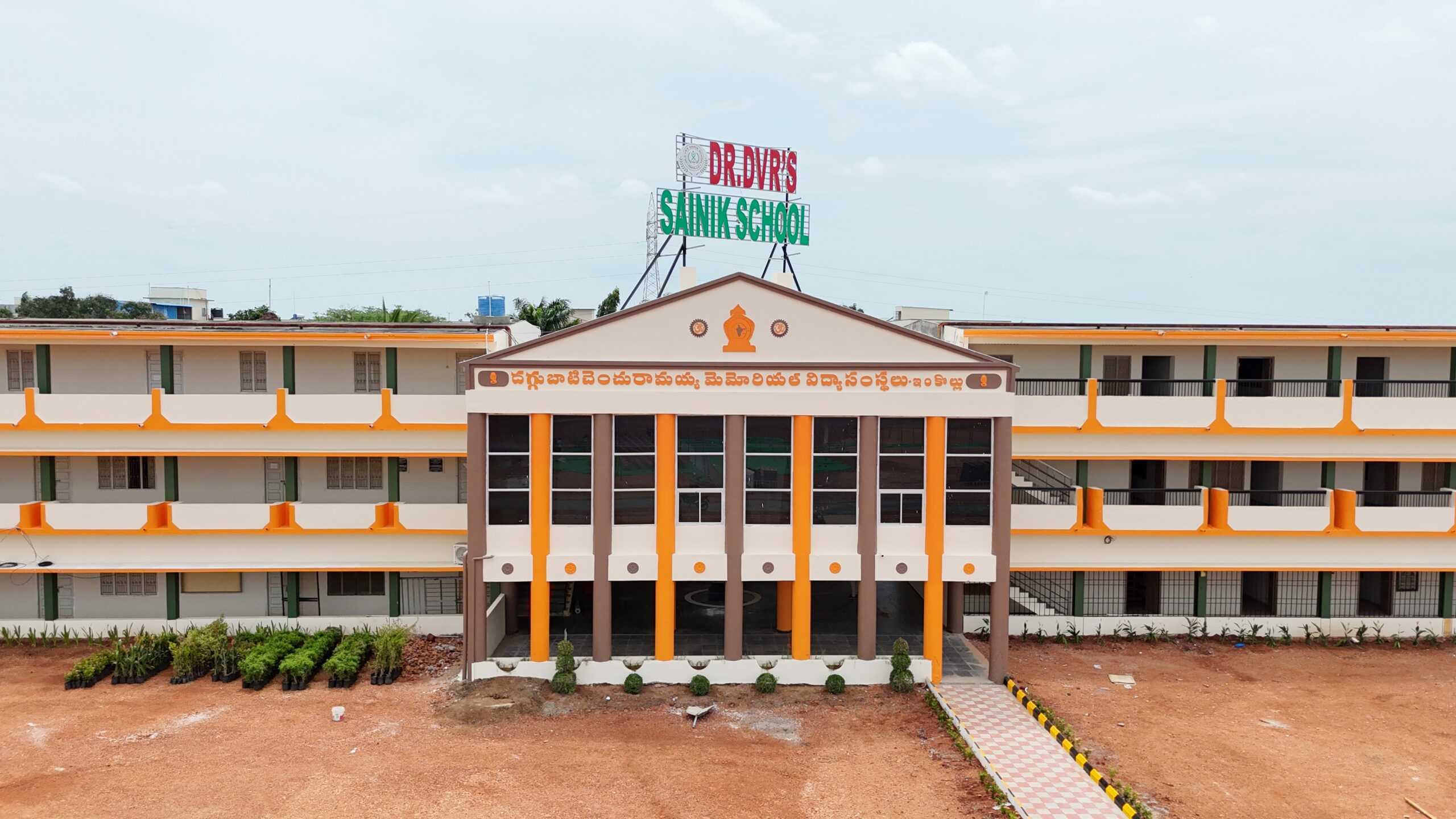- +91-9059140202/9059160202
- drdvrssainikschool@gmail.com
- Inkollu, Andhra Pradesh
- +91-9059140202/9059160202
- drdvrssainikschool@gmail.com
- Inkollu, Andhra Pradesh
About us
Get to know us, introduction of ours!
In the year 1981, a group of philanthropists, doctors, educationists, landlords, and social servants formed a society in the name and style of “The Inkollu Pranteeya Vidya Vignanikabhivrudhi Sangham” to promote educational activities in Inkollu and its surrounding areas.
Inkollu is a rural Mandal headquarters with a population of around 35,000, primarily dependent on agriculture and allied industries. Nearly 90% of the population belongs to lower and lower-middle-class families, who often face difficulties in sending their children to distant places for higher education, an essential step for the economic upliftment of their families. Inkollu serves as a key hub for approximately 20 nearby villages within a 15-kilometre radius, collectively housing a population of 40,000 to 50,000. These surrounding communities rely heavily on Inkollu for their daily needs and transactions. The region is blessed with fertile black cotton soil, which supports good agricultural yield; however, farming here is largely dependent on the monsoon. Given these circumstances, there arose a strong need to establish and promote educational institutions, especially among the elite and socially conscious members of the community, to foster educational growth in this area.

In view of promoting general and technical education in Inkollu and its surrounding areas, and to cater to the needs of the youth, the Inkollu Pranteeya Vidya Vignanikabhivrudhi Sangham came into existence and was registered under the Societies Registration Act, 1860.
The Society first established a Junior College in 1981, offering M.P.C., Bi.P.C., C.E.C., and H.E.C. groups. Initially, it operated in temporary accommodation with a limited number of students. However, within a short span, it grew significantly, and by 1987, a permanent building was constructed. In 1993, the college was admitted into the grant-in-aid system by the Government of Andhra Pradesh. Today, the college continues to serve poor and underprivileged students. It currently employs 15 teaching staff and 10 non-teaching staff, totaling 25 members.
In 1985, a major transformation occurred in our educational institutions. Sri Daggubati Chenchu Ramaiah Garu—a landlord, education enthusiast, and politician—was invited by the Sangham to take an active role in its activities. He graciously accepted the invitation and entered the Sangham with a generous donation. He was elected President of the Sangham. Under his leadership, a Degree College was established, initially offering B.A. and B.Com. courses.
The Junior and Degree Colleges were named ‘Daggubati Chenchu Ramaiah’s Son Neelamohan Memorial Colleges’. Following the unfortunate assassination of our President Sri Chenchu Ramaiah Garu in 1988, the college names were changed. The Junior College was renamed ‘Daggubati Neelamohan Memorial Junior College’ and the Degree College became ‘Daggubati Chenchu Ramaiah Memorial Degree College’.
After the demise of Chenchu Ramaiah Garu, Dr. Daggubati Venkateswara Rao, then the local MLA, was elected President of the Sangham. Under his dynamic leadership, development accelerated rapidly.
DCRM Degree College flourished within just five years of its establishment. In 1990, the college received permanent affiliation from Acharya Nagarjuna University and was recognized by the University Grants Commission (UGC) under Sections 2(f) and 12(B) of the UGC Act. From the 8th Five-Year Plan period onwards, the college has been receiving UGC grants for library enhancement, educational activities, minor research projects, and building infrastructure.
A B.Sc. course was also introduced at the Degree College. Today, it offers high-tech science programs that meet the aspirations of students seeking quality education in scientific and technological fields.
REACH US
DR. DVR’S SAINIK SCHOOL
INKOLLU, BAPATLA DISTRCIT
ANDHRA PRADESH, INDIA-523167
- +91-9059160202 / +91-9059140202
- drdvrssainikschool@gmail.com
- Google Review
©2024. Dr DVR's Sainik School, Inkollu. All Rights Reserved.

